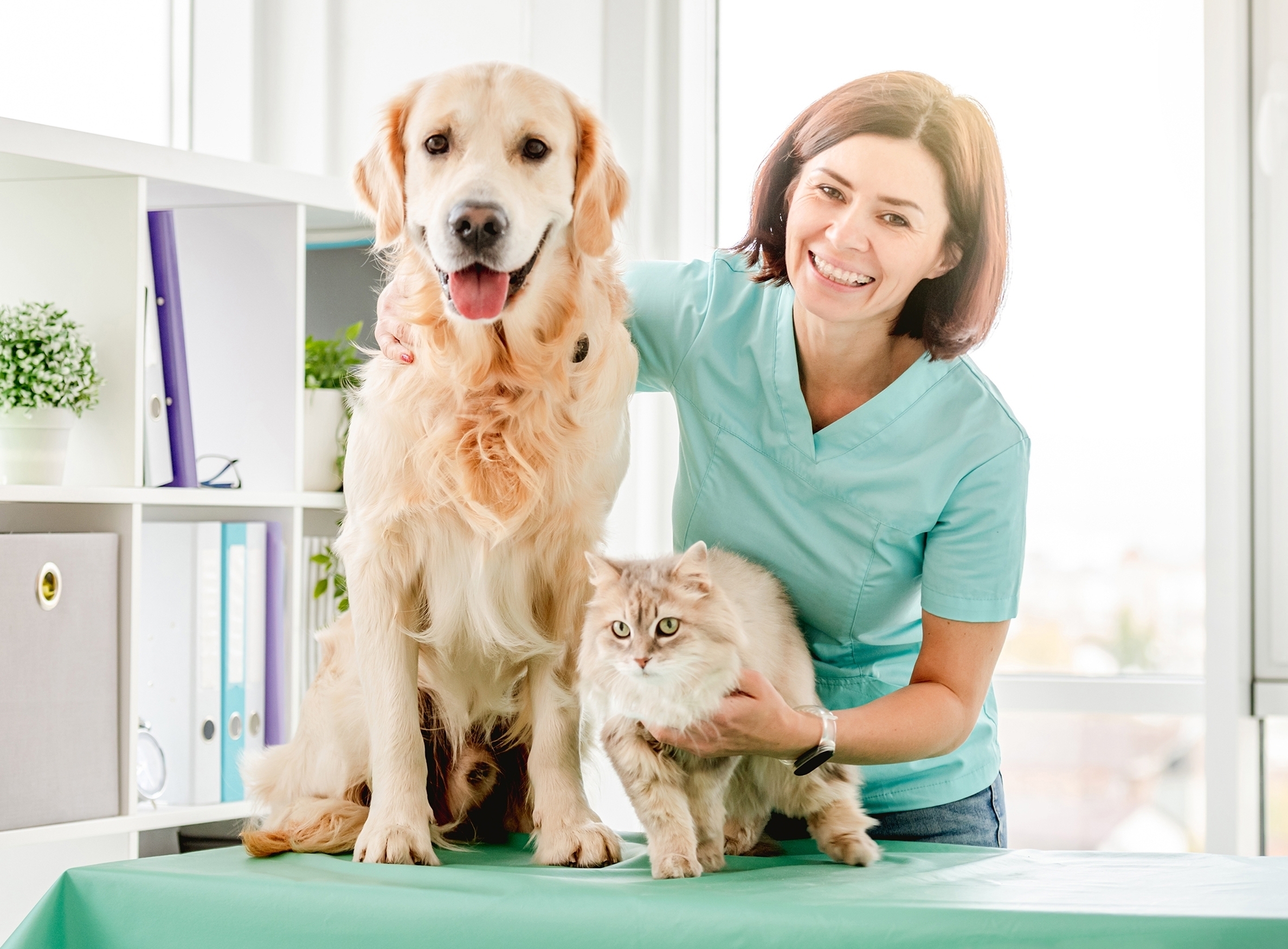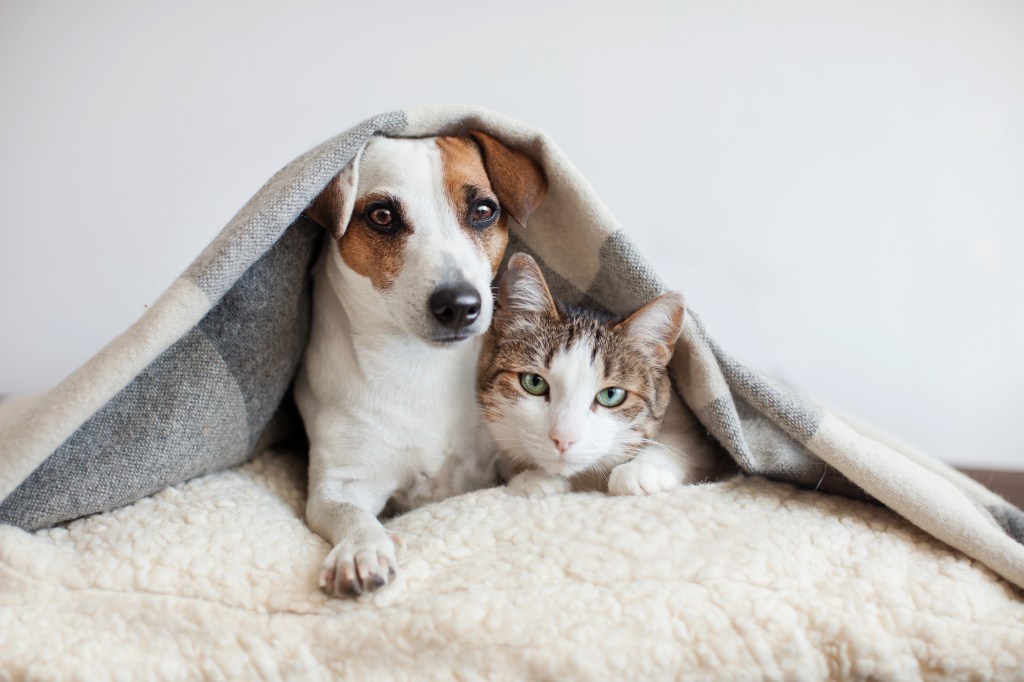Cats are such independent creatures that many people assume that as long as they are regularly fed, they are maintenance-free. That may explain why dogs are twice as likely to be brought to a veterinary practitioner as cats. Yet at different ages and different stages, cats do need veterinary care — and good medical care is important in the life of a beloved pet.
GIVING A KITTEN A GOOD START
Thanks to antibodies that newborn kittens receive from their mother’s milk, they receive temporary protection against infectious diseases. This immunity does not remain strong and weakens as the kitten gets older, and then kittens need vaccines for diseases like panleucopaenia, upper respiratory diseases and rabies. Kittens should get vaccinated at about eight weeks with repeated boosters at three or four-week intervals according to the recommendation of your veterinary practitioner. Rabies vaccine is usually administered at 12 weeks of age onwards for pets travelling abroad. Veterinary practitioner may recommend that kittens at risk for feline leukaemia virus infection begin these vaccines at 9 weeks of age or older. Be sure to consult your veterinary practitioner on what vaccinations are recommended.
This initial visit is an ideal opportunity to discuss when to spay or neuter and microchip.

A CAT’S ANNUAL CHECK-UP
A mature cat may mask signs of illness and cats, even those that never go outside, can benefit from a regular wellness exam. By examining your cat from nose to tail, your veterinary practitioner can observe changes that could indicate disease developing health problem. Early diagnosis and treatment are keys to returning a cat to full health as quickly as possible.
Regular vaccines are important for bolstering your cat’s immune system and helping to combat infectious diseases. Vaccination recommendations should be based on the types of health risks that a cat faces.
SENIOR CATS DESERVE SPECIAL CARE
Once a cat reaches the age of seven, she is considered a senior. A regular check-up helps to ensure she remains in the best possible condition.
Remember that changes indicating underlying health problems can be subtle.
SIGNS TO BE AWARE OF
Regardless of age, any time your pet shows a sign that concerns you – perhaps one of those listed below, contact your veterinary practitioner to discuss a health check.
- Coughing, sneezing, runny nose
- Greater or diminished eating, drinking, urination, defaecation
- Vomiting
- Howling
- Excessive licking
- Change in activity level
- Excessive grooming
- Local hair loss
- Weight loss
- Loss of litter box training
TIP: A visit to the veterinarian is much easier when your cat has learned that her carrier is a place to play with a toy or receive a treat.
TOP TOPICS TO DISCUSS WITH YOUR veterinary practitioner AT A CHECKUP
A vet visit with your cat is a chance to talk about all aspects of your pet’s health. Jot down a list before you go and include notes on any unusual changes noticed, including behaviour, diet, or appearance. A list will help you to make the most of your visit!
Dogs and cats get a lot of benefit from an annual physical exam by a veterinary practitioner. This visit with the doctor is a preventive step that is important in a long and healthy life. Regular exams may also catch early warning signs of before health conditions become apparent to you.
- New pet info – There’s a lot of information to share when bringing your new pet to the veterinary practitioner. Office staff will register your pet’s information and your veterinary practitioner will collect important details about your new pet’s history.
- Overall health – During the exam, the veterinary practitioner will screen your pet for overall health and ask you about your pet’s habits and activity level. This is a good chance to ask about anything unusual you have noticed- remember to check your notes.
- Stool – Your veterinary practitioner’s office may ask you to bring a fresh stool sample with you for parasite testing. Gather a fresh sample to bring with you in a suitable container.
- Parasite protection – Talk with your veterinary practitioner about protecting your pet from parasites and parasite-borne illness. Depending on where you live and the time of year of your visit is, certain parasites may be more common. For example, summer is peak tick and flea season and a discussion around this will be crucial.
- Vaccinations – Your veterinary practitioner may recommend getting vaccinations during the annual exam. These could include distemper, adenovirus, and parvovirus for dogs and herpes virus, calici virus and panleucopaenia for cats. Other vaccinations may also be necessary based on the lifestyle of your pet. This is a good time to ask your veterinary practitioner for vaccination recommendations against illnesses such as Leptospirosis, Bordetella (Canine cough), parainfluenza, or Feline Leukaemia or Chlamydophila for cats.

CORE CAT VACCINATIONS USUALLY INCLUDE:
“Core” vaccines are those that are strongly recommended because of the risk that a cat will encounter the disease.
- Feline Panleucopaenia
- Feline Calicivirus
- Feline herpes virus type I (also called Feline Viral Rhinotracheitis)
Ask your veterinary practitioner about additional vaccination options that could protect your pet from serious illness. Read the following section for some additional information on these vaccination options:
ADDITIONAL VACCINATION OPTIONS FOR CATS INCLUDE:
FELINE LEUKAEMIA VIRUS (FELV)
This is a potential infectious risk for many cats. Infection with the Feline Leukaemia Virus can weaken a cat’s immune system and increase the risk of other infections. This virus can directly cause cancer or blood disorders. FeLV is carried in saliva, nasal secretions, urine, faeces, or blood of some infected cats. Cats may become infected through:
- Mutual grooming
- Shared food or water dishes
- Bite wounds, or fighting with other cats
- Kittens can get FeLV from an infected mother
Coughing and sneezing by infected cats, or even contaminated hands, clothing, and surfaces could infect your pet.
IS YOUR CAT AT RISK?
Your cat is at higher risk if:
- She is still a kitten
- She goes outdoors, even just once in a while
- She contacts other cats
- She shares your house with other cats
Talk to your veterinary practitioner about FeLV testing and vaccination and to get more information on the risks your cat may be exposed to.
Looking for a Veterinary Practitioner?
Your veterinary practitioner plays a big role in your pet’s health. Enter your location information and get a list of vets near you.
FIND A VETERINARY PRACTITIONER NEAR MERABIES
Rabies vaccination is necessary if you are taking your cat abroad. Speak to your veterinary practitioner well in advance of your planned travel date so that your cat can be vaccinated on time and the necessary paperwork completed to meet regulatory and legislative requirements.
CHECKING YOUR CAT FOR FLEAS
BACTERIAL UPPER RESPIRATORY INFECTIONS
Bordetella and Chlamydophila are infectious bacteria that can cause respiratory symptoms and/or runny eyes in cats. If left untreated, then the infection can progress to a more severe problem such as pneumonia. Coughing and sneezing by infected cats, or contact with contaminated hands, clothing, and surfaces can lead to infection in your pet.
IS YOUR CAT AT RISK?
Your cat is at higher risk if he:
- Comes into contact with other cats (farm, shelter, pet shop, multi-cat household)
- Lives in a multi-cat household, or is frequently introduced to new cats
Ask your veterinary practitioner about vaccinations against feline upper respiratory infections.
MAKING THE VISIT TO YOUR VET EASIER
Regular visits with your cat to the vet will help your pet to stay healthy and allow your veterinary practitioner to identify a small problem before it becomes serious.
Here are some suggestions to make the experience as calm and anxiety-free as possible for your cat – and for you.
FOR YOU
Ask your veterinary office for a recommendation for times when the office is likely to be quieter.
Arrive a few minutes beforehand and go in to register while leaving your cat in the car – but be careful if this is a hot day and also be aware that a cat could jump out if the window is left open. If smells, sights, sounds, people and animals in the waiting room could alarm your cat, ask at the desk if there is a quieter place to wait – perhaps an open exam room.
If this is your cat’s first visit with a new veterinary practitioner, bring a copy of your pet’s medical records. A clear explanation of why you’ve come and any behaviours that you are curious about will help make the best use of this visit.
Take notes during your visit. Ask questions if you are not sure that you understand instructions regarding pet care and any medications that are recommended.
FOR YOUR CAT
Most cat owners agree that routine check-ups and preventive care are important — yet less than half regularly bring their cat to the veterinary practitioner.
One big reason is that most cats are unhappy before they even get to see a vet’s office. Many felines resent being placed in a carrier, going for a car ride and then sitting in a waiting room surrounded by strange creatures.
Some ways to make a trip to the vet less stressful to your cat:
- Carefully clip your cat’s nails before the appointment
- Line the carrier with a towel your cat can hide in
- Bring a cloth to cover the carrier in the car and waiting room
- Keep your cat in the carrier until you enter a private exam room.






 Go To United States
Go To United States Austria
Austria Belgium
Belgium Czech Republic
Czech Republic Denmark
Denmark Europe
Europe Finland
Finland France
France Germany
Germany Greece
Greece Hungary
Hungary Ireland
Ireland Israel
Israel Italy
Italy Netherlands
Netherlands Norway
Norway Poland
Poland Portugal
Portugal Romania
Romania Saudi Arabia
Saudi Arabia Slovakia
Slovakia South Africa
South Africa Spain
Spain Sweden
Sweden Switzerland
Switzerland Turkey
Turkey United Kingdom
United Kingdom